Plumbing is among one of the closely regulated trades in the U.S. This means that to become a licensed plumber, one must train under the supervision of a master plumber and sit for trade exams before they are registered. Almost all states have plumbing licensing or certification requirements for master and journeyman plumbers, but the trade exams and requirements vary from one state to another. Having gone through rigorous years of apprentice training and study, you want to ensure that you abide by the laws in your state to grow your plumbing business.
It is a well-known fact that skilled, licensed plumbers are always in high demand, and their job prospects are expected to be great through 2029 (and beyond!), according to the Bureau of Labor Statistics. So, becoming a licensed plumber is a smart career decision. Getting your plumbing license is one of the most crucial steps to becoming a certified and licensed plumber. Most states won’t allow you to operate without a license, and with a reason too – plumbing is a skilled trade that requires education and professional experience.
Do you want to know how to become a licensed and certified plumber in your state? If so, we got you covered. In this post, we will discuss the process of how to become a licensed plumber in detail, outlining the different steps involved depending on the state where you reside. The plumbing licensing requirements can vary greatly from state to state. Therefore, you must identify the right process for your state; this is not a “one-size-fits-all” solution.
Without further ado, let us dive into our post!
How to Become a Qualified Plumbing Contractor

Plumbing is an appealing and lucrative industry, which pays approximately $56000 per year (According to the Bureau of Labor Statistics data). Homeowners regularly require plumbing installations or repairs, and there is always a demand for plumbers who can come to the rescue in case of any emergency like a clogged toilet or flooded basement. As such, more and more people are starting their plumbing companies to tap into this profitable market.
But how can you become a qualified plumbing contractor and get the license? What kind of information do you require to know before you launch your career in plumbing? While the requirements of becoming a certified and qualified plumber vary from one state to another, there are simple steps you will probably take no matter where you will be working.
Here are our simple steps to becoming a qualified plumbing contractor that you need to know:
- Get on-the-job training by completing an apprenticeship program approved by the plumbing licensing board.
- Obtain your plumber license so that you can book jobs and offer plumbing services without supervision
- Become a legal plumbing contractor by starting a plumbing firm and subcontract work from other licensed plumbers
- Make sure that you have the appropriate insurance including surety bond, general liability, and worker’s compensation insurance.
- Develop your business management skills to keep up with the newest problems and trends to stay ahead of the curve.
What is a Licensed Plumber?
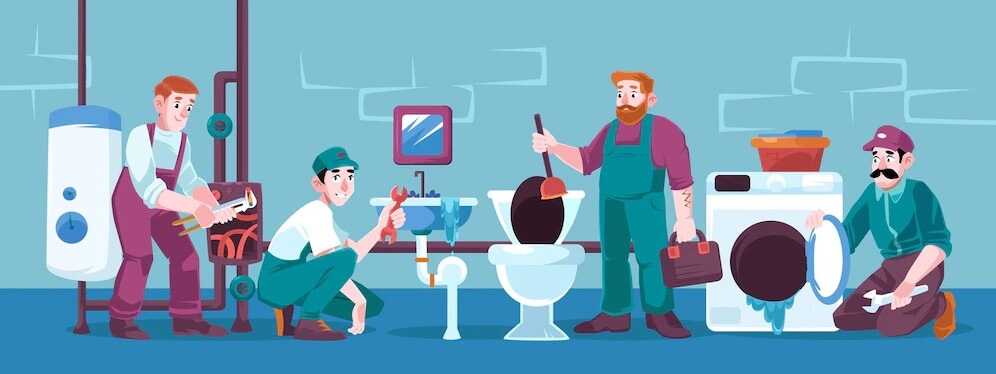
A licensed plumber is a professional tradesperson who has met all the testing and qualification needed to operate legally in their state or city. Licensing is a very crucial aspect of becoming a journeyman or master plumber. This is because once a plumber is given a license, they are certified as possessing the requisite expertise, experience, and knowledge to perform their work according to recognized plumbing codes and standards.
Licensed plumbers are given a compliance certificate to show to their potential employers. This certificate shows that a plumber will adhere to all relevant plumbing standards, regulations, and codes on the job. They are also insured to assist their clients if their plumbing work is faulty or substandard. Unlicensed plumbers may be penalized for performing work without a valid license.
How to Become a Licensed Plumber in 6 Easy Steps (With Tricks and Tips)
Since plumbing is a skilled trade, people who wish to become licensed plumbers must meet certain requirements. Plumbers handle different kinds of work for commercial and residential buildings. The time it takes to obtain the necessary plumbing licensing, certifications and training vary from state to state. If you want to know how to become a licensed plumbing contractor in your state, read the simple steps below to get started:
Step 1: Obtain Your High School Diploma or its GED Equivalent
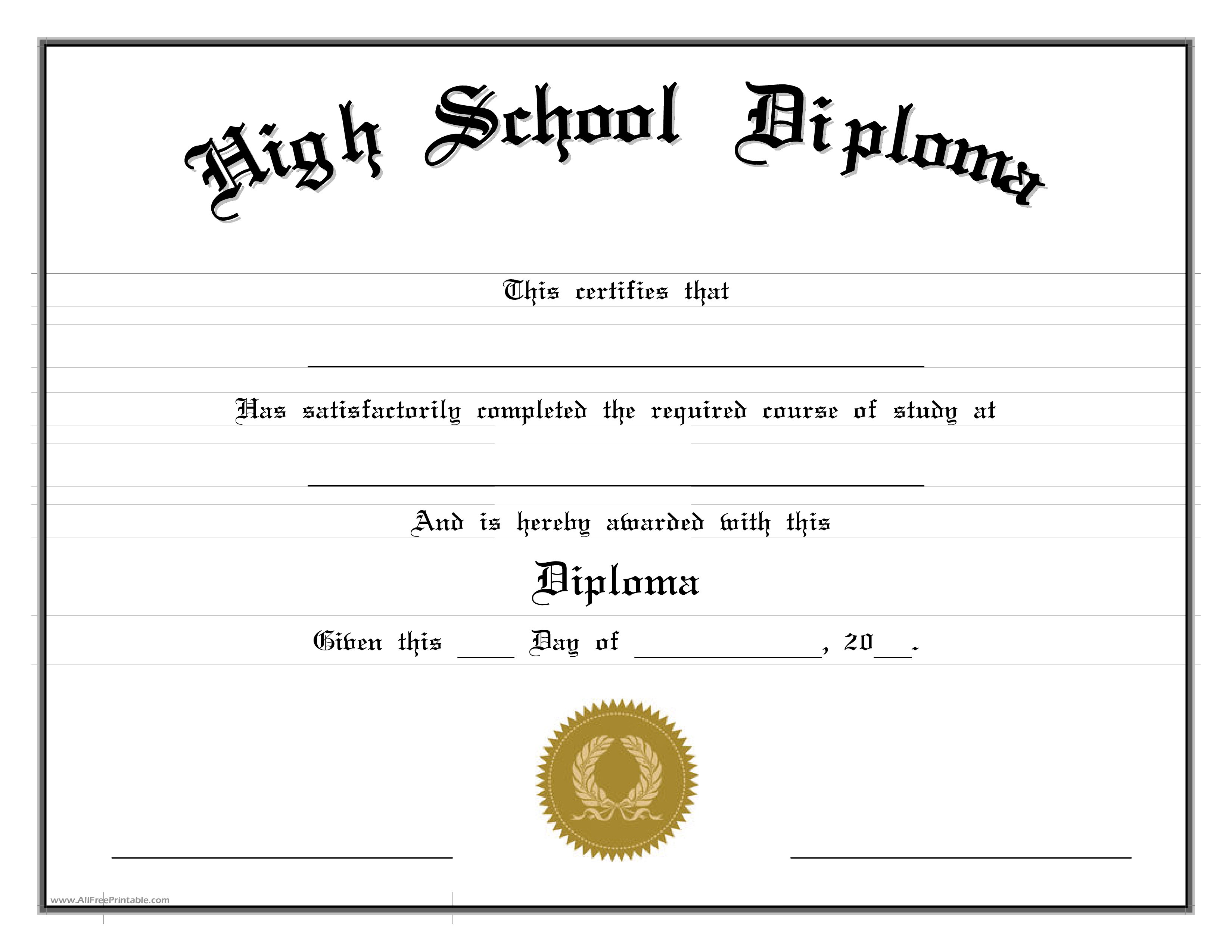
To become a licensed journeyman plumber, you must meet specific minimum educational requirements. The very initial and most important step how to become a licensed plumber is obtaining your education. High school diploma graduates have the best opportunity of getting a plumbing apprenticeship because of the math, English, and applied Physics skills gained, which will assist them when taking up their apprentice plumbing aptitude test.
After passing the aptitude test, the next step is to obtain specialized training in plumbing. This is where you learn the theoretical and practical aspects of the job. The common career path options can include going to a trade school or college with approved courses. Vocational training programs are crucial because they prepare you to handle day-to-day tasks and business aspects of your trade. However, a GED certificate will work in most plumbing apprenticeship programs if you don’t have a high school diploma.
Step 2: Join and Complete a Plumbing Apprenticeship Program

Joining an apprenticeship program is the next step toward becoming a licensed plumber. Many states will require you to have 3 to 4 years of experience as an apprentice before you apply for a journeyman plumbing license. You must actively work for a master plumber who will sponsor you in the apprenticeship program. During your apprenticeship, you will be working directly under the supervision of a master plumber, who will teach you additional skills.
To qualify for a plumbing apprenticeship program, you must be at least 18 years old, have a valid driving license, and pass a drug screening test to be accepted into the program. Once you have been accepted as a plumbing apprentice, you will actively work under the guidance/supervision of a master plumber for a set number of years. Normally this is between 4 and 5 years and includes a combination of both plumbing courses and on-the-job training.
Pro tip: Select a master plumber whom you have a good relationship with because you will spend many years under their supervision or guidance.
Step 3: Enroll in a Plumbing Trade School and Complete the Requisite On-the-Job Training/Classroom Hours
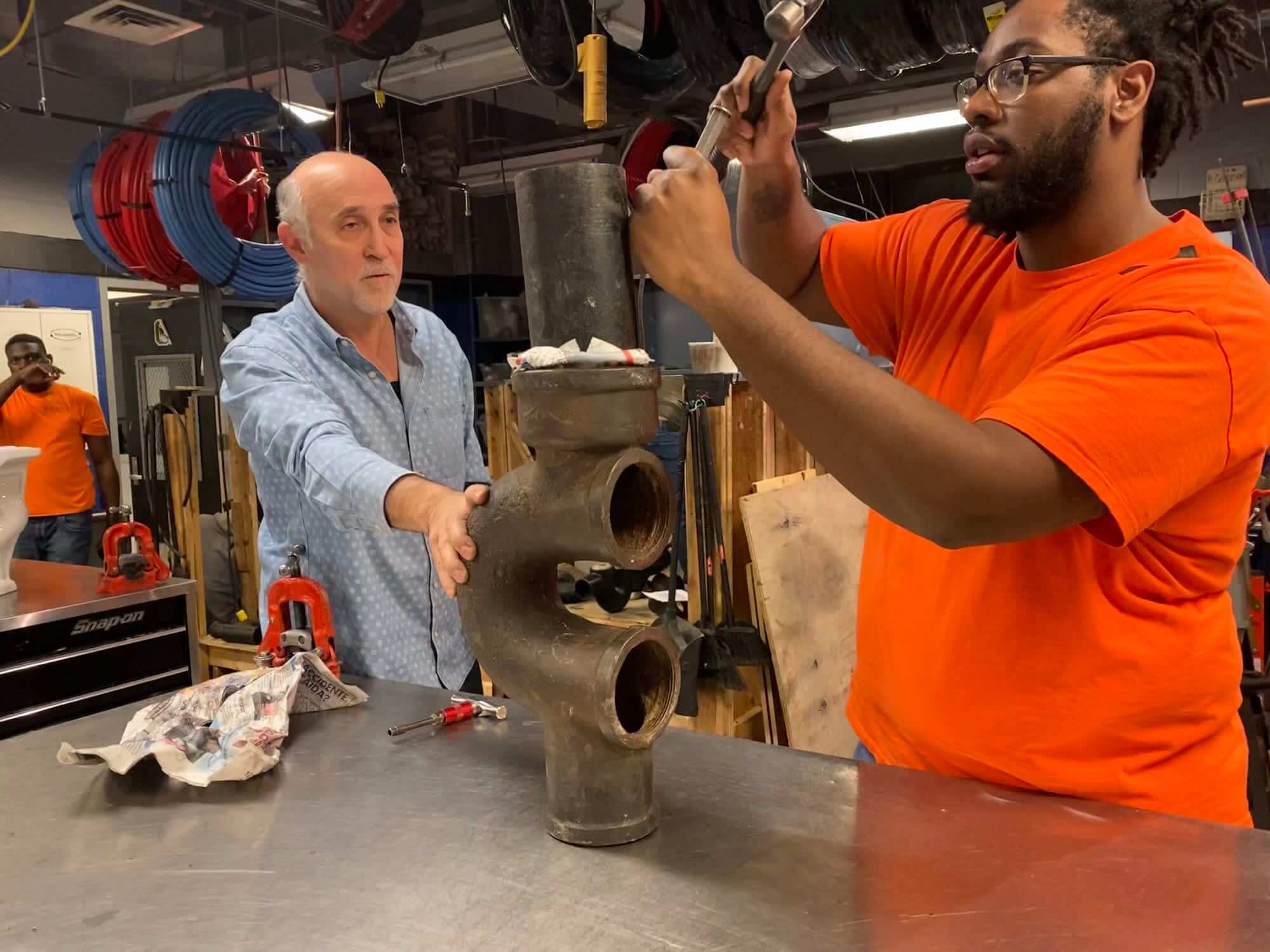
Every plumbing apprenticeship program will have its minimum number of classroom and work hours, and a master plumber normally supervises the apprentice to be eligible for the journeyman’s plumbing licensing exam. This varies from state to state, so be sure to check your state’s requirements. On average, most states will require you to complete at least 2000 hours of work each year and an addition to 250 hours of the classroom every year.
You may feel intimidated at first thinking that you are going to take a lot of time for training. But the good news is that you will be paid good wages as an apprentice plumber. You can comfortably earn between $15 to $ 25/hour as an apprentice plumber, depending on your skill set.
Step 4: Apply for a Journeyman Plumber Licensing Exam
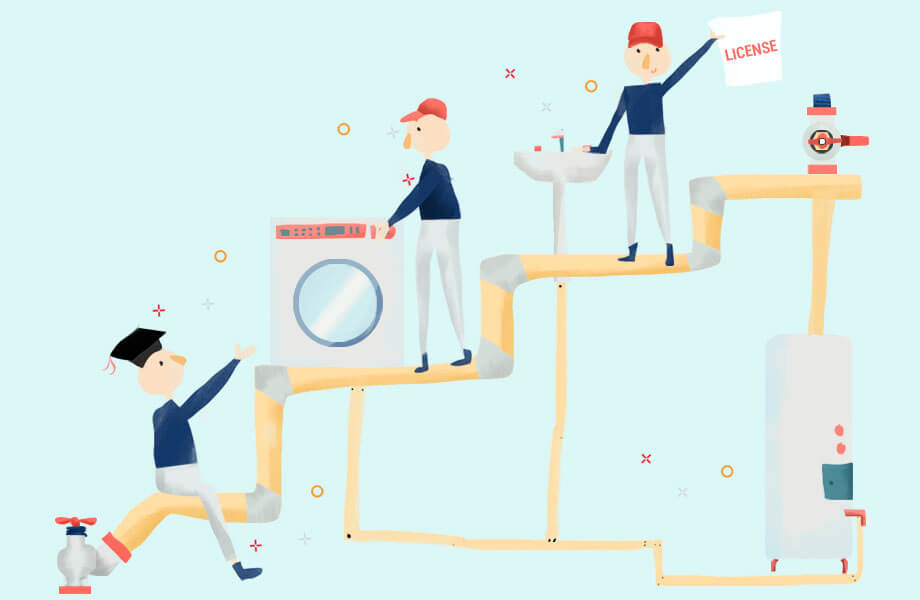
After you have completed your apprenticeship and formal education program, you can apply for your plumber licensing examination. You may be required to offer proof of doing an apprenticeship that lasted the set number of years. Inquire with your state’s department of labor to know where and when you can sit on the exam. If you finished your plumber apprenticeship program through a private plumbing contractor, you will be required to get an affidavit that confirms you have met all the state’s plumber licensing requirements and thus are eligible for an examination.
If you have not completed your plumbing apprenticeship classroom hours, along with on-the-job training hours requirements, you cannot sit for a journeyman plumber licensing examination.
Step 5: Obtain Your State Journeyman Plumber’s License
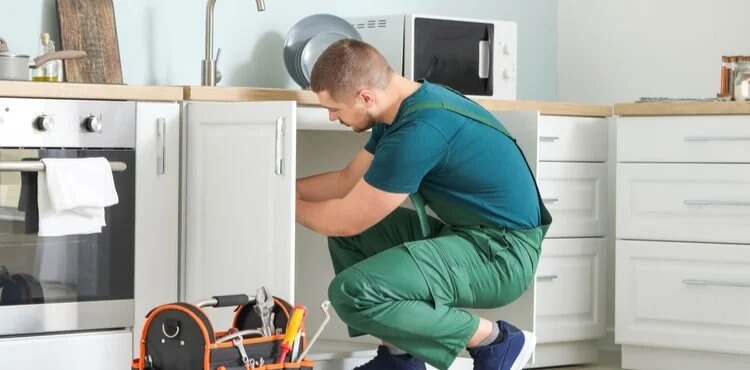
Once you have passed the journeyman licensing examination, you will be given a state plumbing license as well as journeyman plumber certification. This plumbing license will have a fee associated with it, and you will be required to renew it annually. This is a nominal fee but will help to keep your certification valid and current.
Step 6: Continue learning to become a master plumber
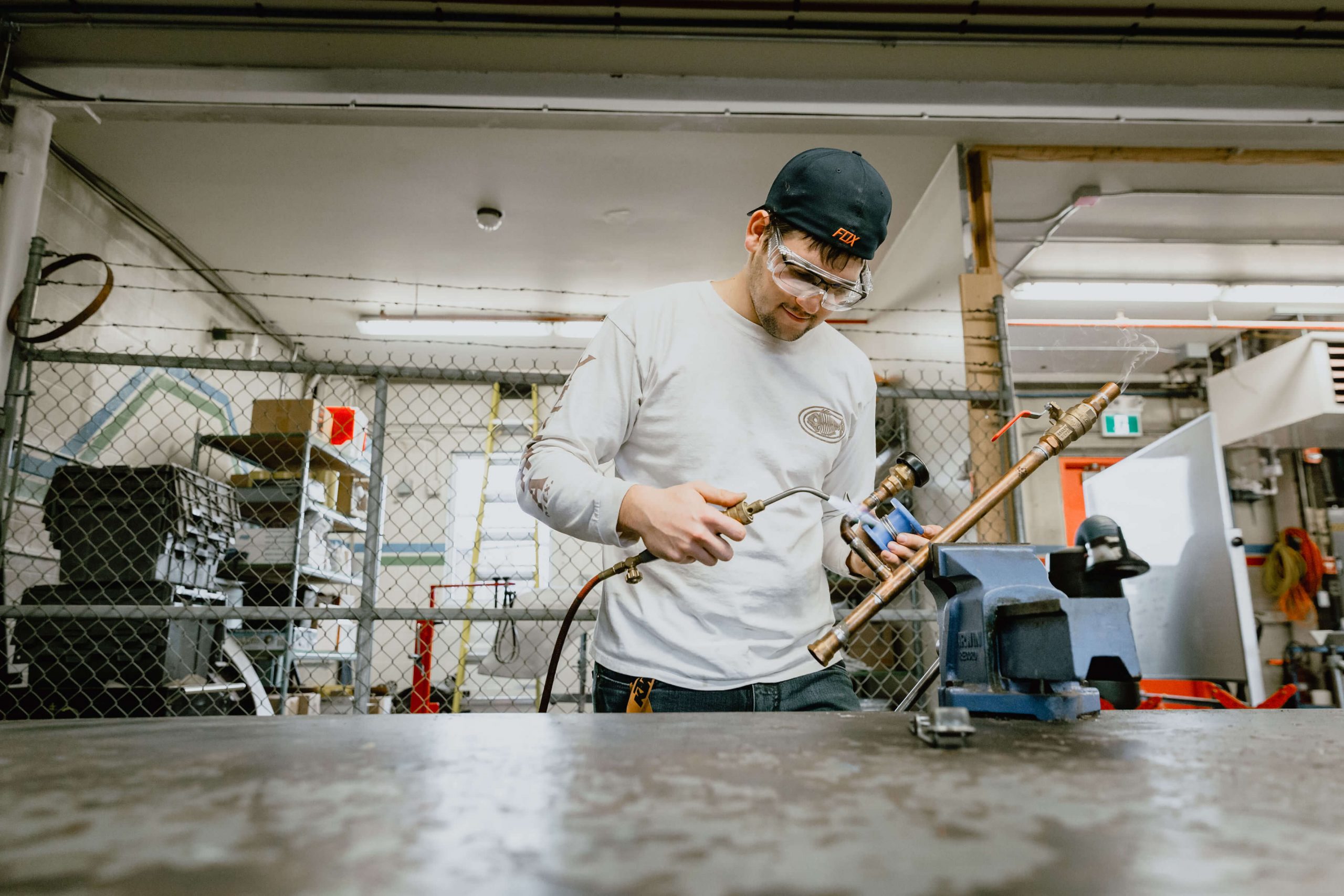
Once you have received your journeyman plumbing license, you may require to renew it once after three years, depending on your state’s law. But you must keep up with any new plumbing codes and regulations your state passes to ensure your work follows all applicable laws.
If you want to perform more advanced plumbing work or train other aspiring plumbers, consider learning more to become a master plumber. You will require five years of experience and passing a master plumber exam to obtain this designation.
How to Become a Licensed Plumber: Licensing Requirements for Every State
Each state has its own plumber licensing requirements as well as different licensure levels. Your plumbing license is as vital as your insurance, so make sure that you have all the details. That’s why we have compiled this comprehensive guide of 50 states and their plumber licensing requirements. But ensure that you confirm with your local licensing body for any new regulations.
Read to find out the plumbing licensing requirements in your state below.
Arizona

Is a license needed to work as a plumber in Arizona? Yes.
The state of Arizona requires all plumbing contractors to sit and pass two exams to obtain their plumber’s license. The first one is a business management theory exam, and the second one is a plumbing trade examination.
To be eligible for licensing, you will need at least two years of experience in plumbing. But you can substitute the experience with any training or education you have obtained.
After passing your licensing exam, you can get your license from the Arizona Registrars for Contractors.
Alabama
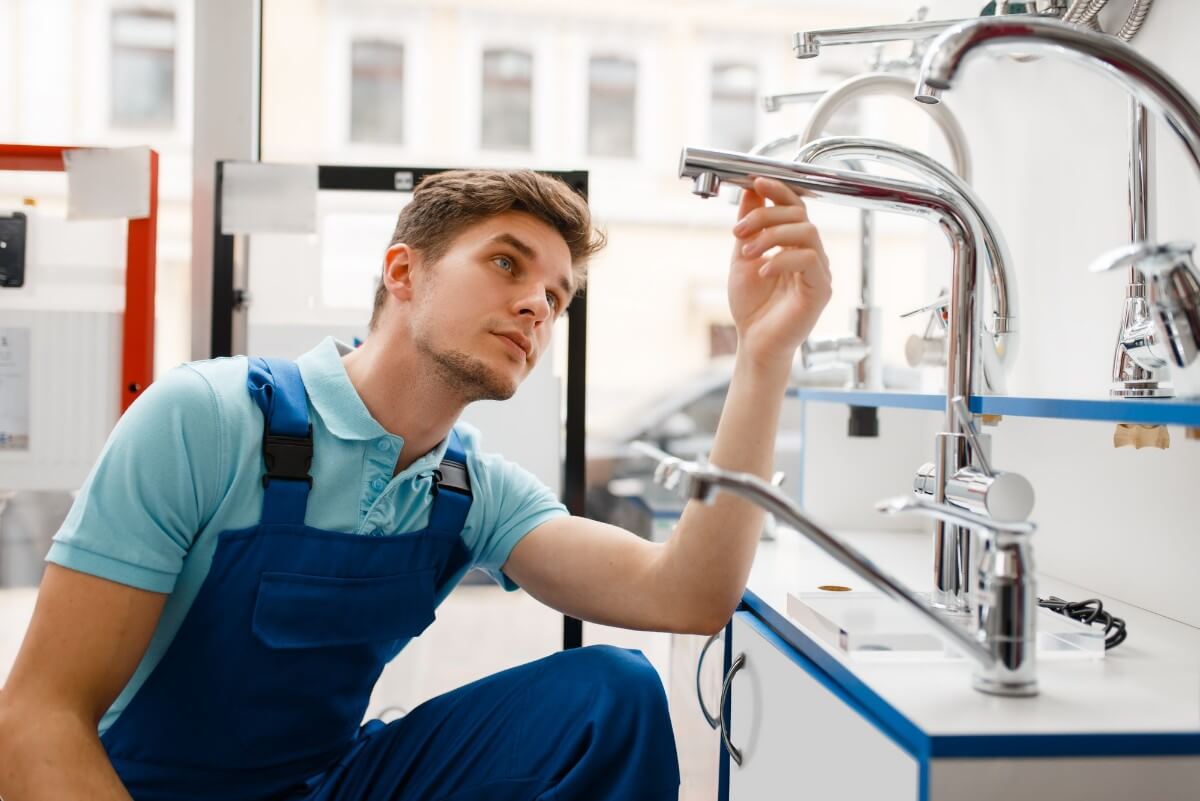
Plumbers must obtain a state license to book plumbing jobs in Alabama. To qualify for a journeyman plumber license, you must have a minimum of two years of experience as a plumber apprentice or must complete an apprenticeship program approved by the State of Alabama Plumbers and Gas Fitters Examining Board. The good news is that you need one year of plumbing experience as a journeyman plumber to apply and sit for a master plumber exam.
Alaska

Is a state license required to work as a plumber in Alaska? Yes.
Without a state license or certification, you will not be able to conduct any professional plumbing work in Alaska.
To work as a plumber in Alaska, you will require a state license from the Alaska Department of Labor and Workforce Development.
You need at least 8,000 hours of experience installing residential or commercial plumbing systems to qualify for your journeyman plumber license. Or have finished 1,000 hours of related in-class experience. Besides, you will also be required to pass your plumbing licensing exam.
To get a plumber gas (PG) license in Alaska, you must show proof of over 4000 hours of experience with half of the time used to install gas piping systems.
To qualify for a plumber utility license(PU), you must complete at least 1000 hours of plumbing experience installing storm, water, and sewer lines.
Arkansas

Plumbers in Arkansas are required by law to have a state license before they can perform any plumbing maintenance or installation work. The license is given by the Arkansas Department of Health, Plumbing, and Natural Gas Division.
To qualify for a journeyman plumber license, you require a minimum of 4 years of experience as a plumbing apprentice. On the flip side, to apply for a master plumber license, you must have five years of experience as a journeyman plumber and pass the licensing exam.
California

To perform any plumbing installation or maintenance work in the state of California, you will be required to get a plumber license from the California Contractors State License Board.
To become a licensed plumber, you will be required to pass the California plumbers exam which consists of business management and law exam.
To be eligible for these exams, you require four years of experience as a foreman, journeyman, contractor, or supervisor. After you have passed the exam, you will be required to do criminal background checks and file a $10K bond with the licensing board.
Colorado

You need a state license to perform any plumbing work in Colorado. There are various plumbing license classes given by the Colorado Department of Regulatory Agencies and the State Plumbing Board. However, you must sit and pass an exam to get a plumber license.
- Journeyman Plumber: You must show proof of 4 years (6,800 hours) of experience.
- Master Plumber: You must have 5 years of experience as a journeyman plumbing contractor.
- Residential Plumber: You must show proof of two years of experience (3, 400 hours).
Connecticut
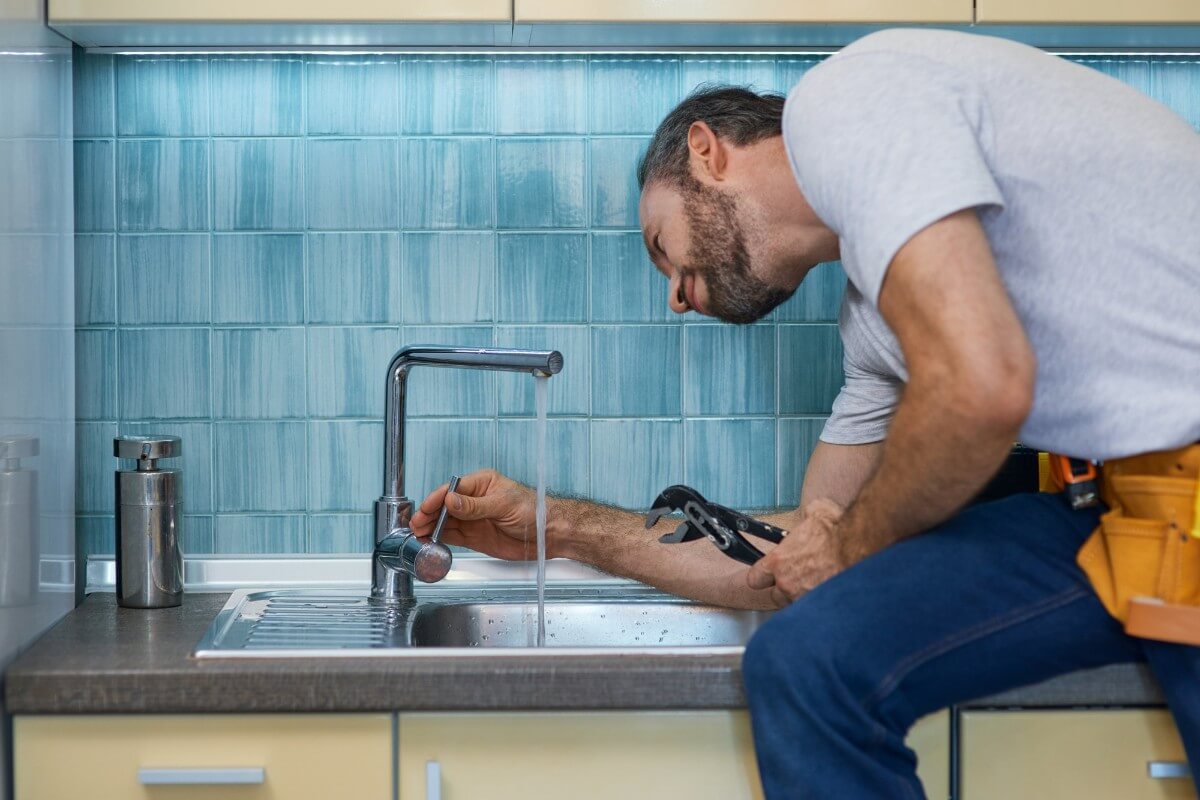
To perform any plumbing installation or repair work in Connecticut, you must understand the process of how to become a licensed plumber.
There are two types of plumber licenses: unlimited plumbing contractor and unlimited journeyman plumber.
An unlimited journeyman plumber helps plumbers work under the guidance of a licensed master plumber and execute basic plumbing projects. To obtain this license, you will require to apply and complete an apprenticeship program and then pass the licensure exam.
Unlimited plumbing contractor license allows performing plumbing projects unsupervised. Before you apply for this licensing exam, you need at least two years of experience as an unlimited journeyman plumber.
Delaware

The state of Delaware requires a plumber license for any organization or person that is engaged in any kind of plumbing activity- whether as a master or journeyman plumber for a company. To become a licensed plumber in Delaware, applicants must comply with the Delaware Department of Revenue.
To get your journeyman plumber license, you must show proof of two years of work experience and prove that you have finished an apprenticeship program before being allowed to sit for exams.
To qualify for your master plumber license, you will require a minimum of seven years of experience as a journeyman plumber.
Florida

All contractors must be licensed to perform any kind of plumbing work in the state of Florida. This license will be issued by the Florida Department of Business and Professional Regulation.
To work as a licensed and certified Florida plumber, you will have to pass two exams, the first on finance and business management, and the second one will be a plumbing trade exam.
Make sure that before you apply for a plumbing licensing exam, you have met all the additional requirements. These requirements may include a minimum of 4 years of experience, a current credit report, and assets worth at least $2,500.
You can obtain your plumbing license from the Florida Construction Industry Licensing Board.
Georgia

You must be licensed to perform any plumbing installation or maintenance work in the state of Georgia. To get your journeyman-level plumber license, you will be required to show proof of three years of plumbing work experience and obtain approval from the state to sit for the licensing exam.
There are two different classes of master plumbers in Georgia namely:
- Class one master plumbers: You will require at least five years of experience with two of them working as journeyman plumbers.
- Class two master plumbers: You will need some years of experience as class one master plumbers, as well as specific experience with industrial or commercial plumbing systems. The main difference is that they are unrestricted and can bid on any plumbing work they choose.
Idaho
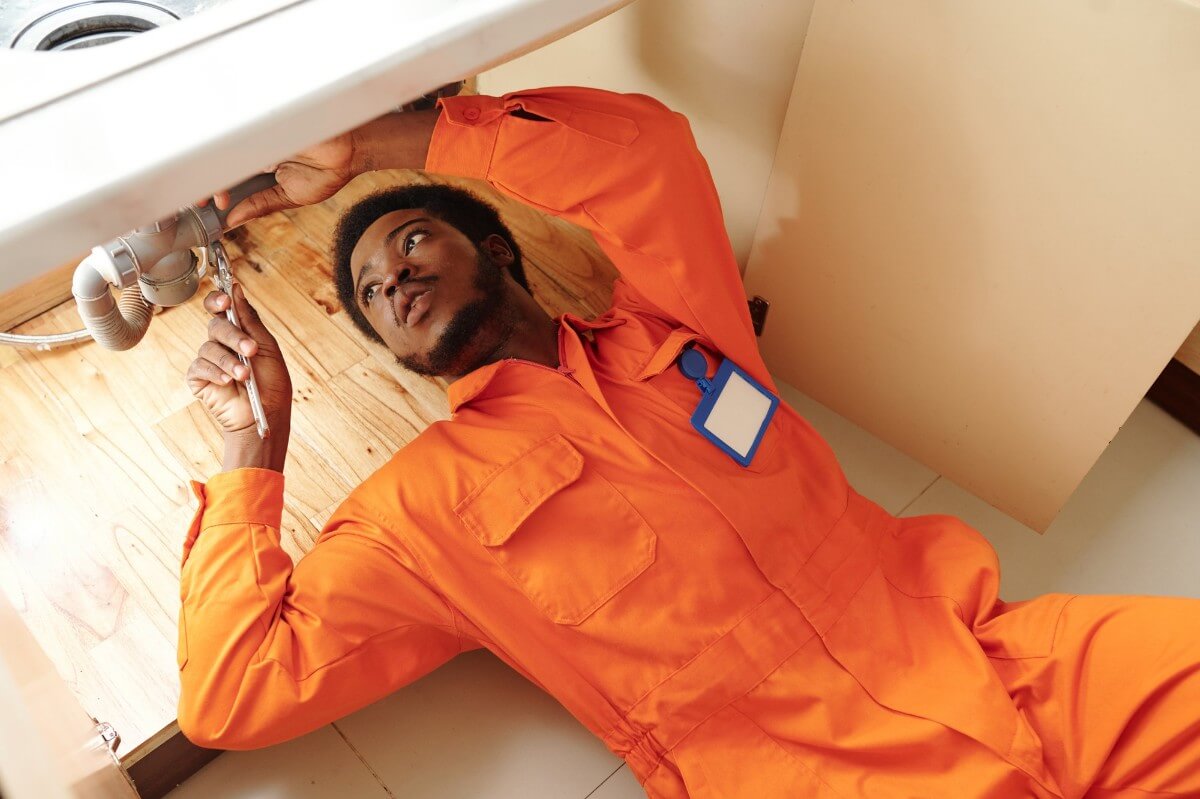
To do any plumbing work legally in Idaho, you must be licensed by the state. To become a licensed plumber in Idaho, any business or individual is required to sit and pass the Idaho plumber licensing examination administered by the Division of building safety.
Plumbing apprentices are required to complete a four-year apprenticeship program which consists of at least 8000 hours of relevant work experience and 576 classroom hours to qualify for a journeyman plumber license exam. Idaho also provides some specialty plumbing licenses that need additional training/education.
Illinois

In the state of Illinois, a plumber licensed is needed to perform any plumbing installation or maintenance work. To become a licensed journeyman plumber, you require four years of apprenticeship under a master plumber and pass a licensing exam. To get your license renewed, you must complete a minimum of four hours of continuing education.
Indiana

To work legally as a plumber in Indiana, you must have a license issued by the Indiana Professional Licensing Agency, Plumbing Commission. However, the licensing requirements will vary based on the type of license you want:
- Plumber Apprentice: You do not need a license, but you must be registered.
- Journeyman plumber license: You should apply via an approved apprenticeship school or plumbing company. You must have completed at least four years of training and have passed the trade exam.
- Master Plumbers: To obtain your plumbing contractor license, you must complete a four-year apprenticeship program under a licensed plumber or be a licensed plumber from another state.
Iowa

To qualify to work as a plumber in the state of Iowa, you will be required to get a license from the Iowa Plumbing and Mechanical Systems board.
To get your journeyman plumber license, you must have completed a four-year apprenticeship program and passed the licensing exam.
If you want to graduate to become a licensed master plumber, you will need two years of experience as a journeyman plumber and pass the additional master plumbing licensing exams.
Hawaii

You will require a state license to work as a plumber in Hawaii. These licenses are issued by the Department of Commerce and Consumer Affairs, Professional and Vocational Licensing Board of Electricians and Plumbers. Here are some of the plumber licensing requirements in Hawaii.
- Journeyman plumber: You should show proof of five years of experience and a minimum of 10000 hours in plumbing work by the Uniform Plumbing Code (UPC).
- Master Plumber License: To get licensed as a master plumber, you must have at least two years of experience working as a journeyman plumber.
Kentucky
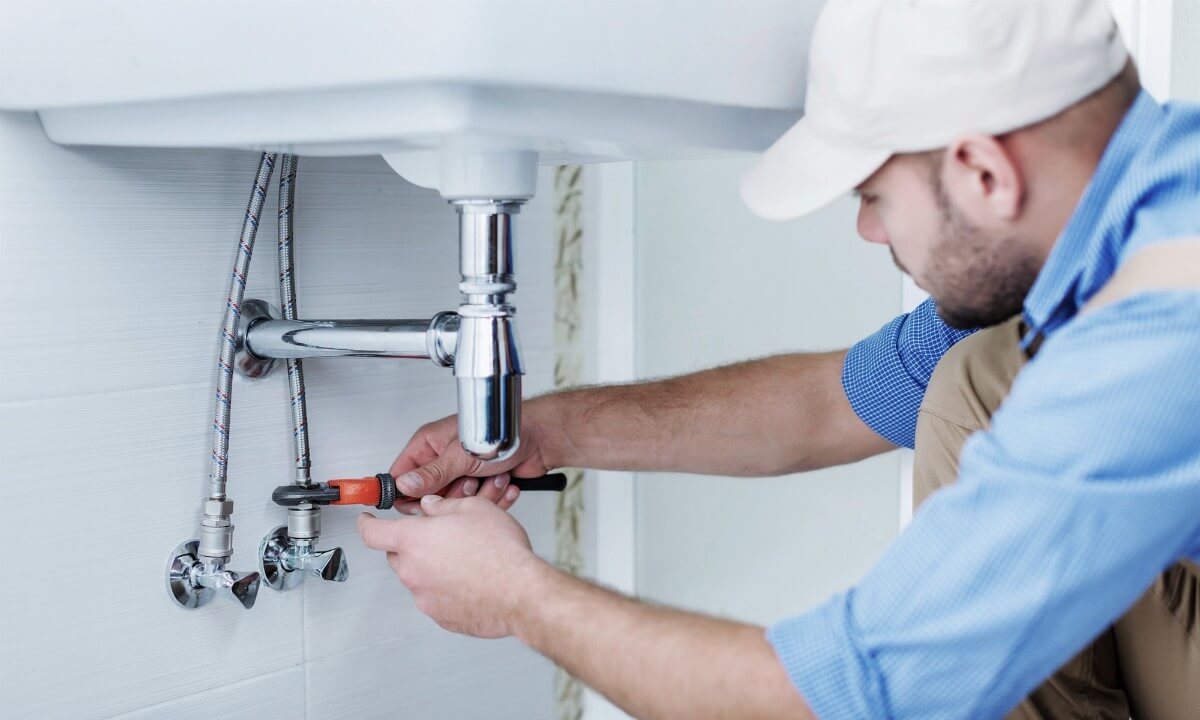
To perform any plumbing work in Kentucky, you must have a state license. There are several licenses issued by the Department of Housing, Buildings, and Construction, Plumbing Division.
- Journeyman Plumber: Must have completed at least two years of relevant work experience and passed the trade exam.
- Master plumber: You must have a valid journeyman license and pass the master plumber licensing exam
Louisiana

You require a state license to do any plumbing work in Louisiana. The State Plumbing Board issues licenses to plumbing contractors. There are two levels of plumber licensing in the state of Louisiana. These kinds of plumbing licenses include:
- Journeyman plumber: You must have completed an apprenticeship program approved by the licensing board. In addition, you must pass a trade exam.
- Master Plumber: You must have a current journeyman plumbing license and pass a trade exam. However, if your plumbing work exceeds $10k, you will also be required to get a commercial plumbing license awarded by the State Licensing Board for Contractors. To get this license, you must pass a trade exam as well as a law and business exam.
Maine

Plumbing contractors in Maine must have a state license to be allowed to operate. You must meet all the plumber licensing requirements for the particular license that you want. These licenses are issued by the Plumbers’ Examining Board.
- Journeyman plumber: Minimum two years of experience and 4,000 hours of experience installing plumbing systems.
- Master Plumber: You will require one year or 2000 hours of experience performing plumbing work as a journeyman plumber under the guidance of a master plumber.
Maryland

To do any plumbing work in Maryland, you need a state license. There are multiple levels of plumber licenses, and each one comes with special licensing requirements. These plumbing licensing requirements include but are not restricted to:
- Apprentice plumber: You must be at least 16 years old.
- Journeyman plumber: Minimum four years of experience as an apprentice, 7,500 hours under the supervision of a licensed plumber, 32 hours spent in backflow prevention management, and passing the licensing exam.
- Master plumber: You must have at least two years of experience as a journeyman plumber, 3750 hours under the guidance of a master plumber, and pass a licensing exam.
Michigan
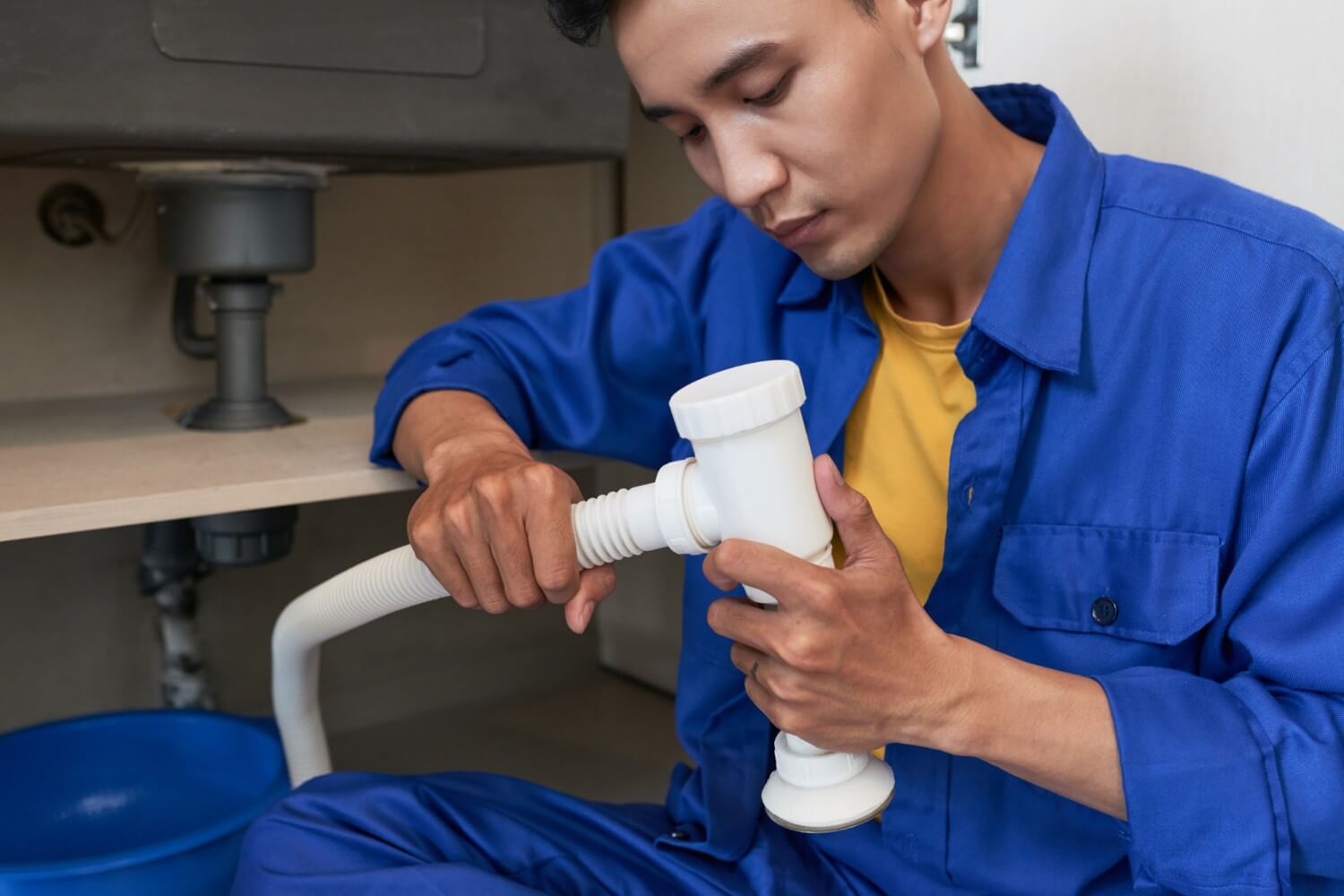
Plumbers must be licensed before they can be allowed to work in Michigan, and the state’s Department of Licensing and Regulatory Affairs awards these licenses. Here is an overview of plumbing licensing requirements in Michigan:
- Journey plumber license: You must have attained a minimum of 6,000 hours of experience in less than three years as a plumbing apprentice and pass the licensing exam.
- Master plumber license: You must have at least 4,000 hours of experience as a journeyman plumber in less than two years and pass an exam.
Minnesota

To do any plumbing work in Minnesota, you must have a state license. These licenses are issued by the Minnesota Department of Labor and Industry, Construction Codes, and Licensing Division. The plumber licensing requirements here include:
- Plumber journey worker: You must have 7,000 hours of experience with 2000 hours in waste, vent, and drain installation, 1,000 hours in fixture installation, and 2000 hours in water distribution installation. You will also be required to sit and pass the licensing exam.
- Master plumber: 1, 750 hours of experience as a journeyman plumber and pass the exam.
Mississippi

You require a state plumbing contractor license to work legally as a plumber in Mississippi. These licenses ate issued by the State Board of Contractors. Plumbing licenses are needed for residential projects that exceed $10k in value, and it is also required for commercial projects exceeding $50K in value. But you must sit and pass an exam before obtaining a license.
No state license will be needed for plumbing projects that don’t meet these totals. But, there may be other local licensing requirements for plumbers. Check with a reputable plumber in your area to know more.
Montana
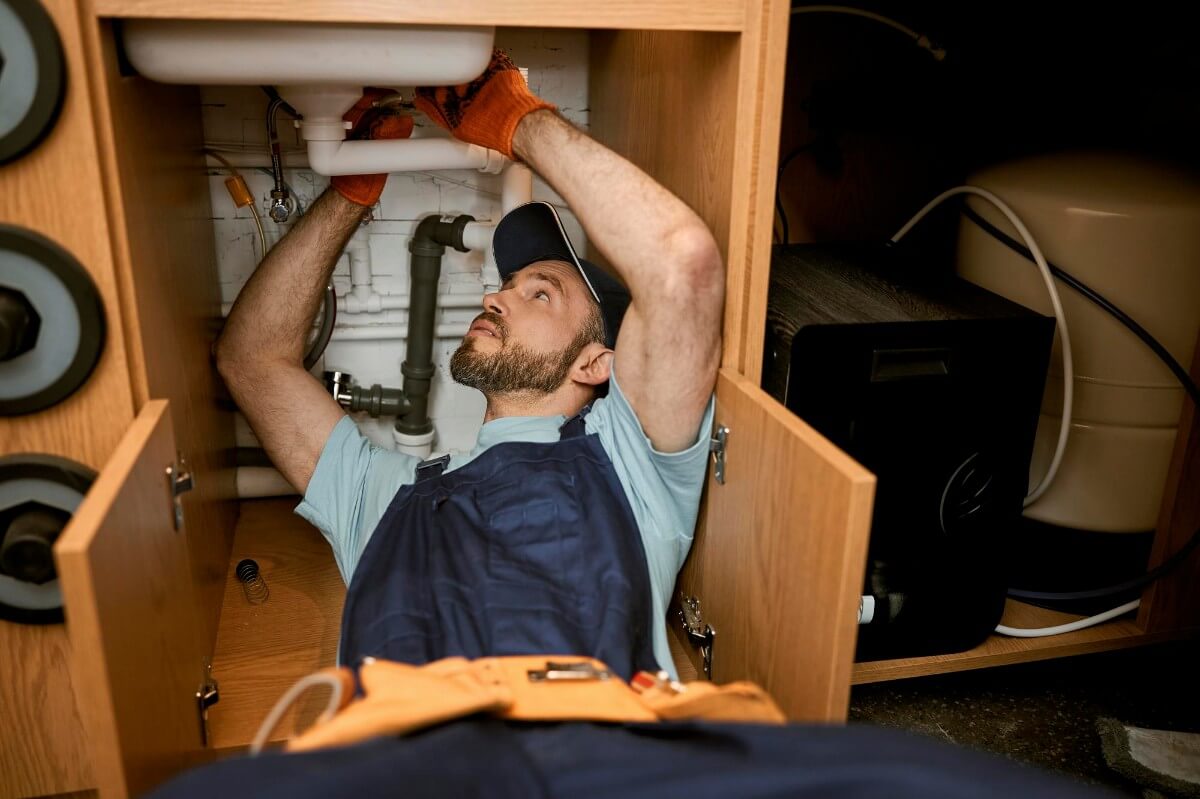
A state license is needed for all plumbing contractors in Montana. These licenses are awarded by the state’s Department of labor as follows:
- Journeyman plumber: You must pass through a plumbing apprentice program with five years of experience. You must pass a licensing exam.
- Master plumber: A minimum of four years of experience as a journeyman level plumber under the guidance of a master plumber. Show proof of nine years of plumbing work-related experience. You must pass the licensing exam.
Missouri
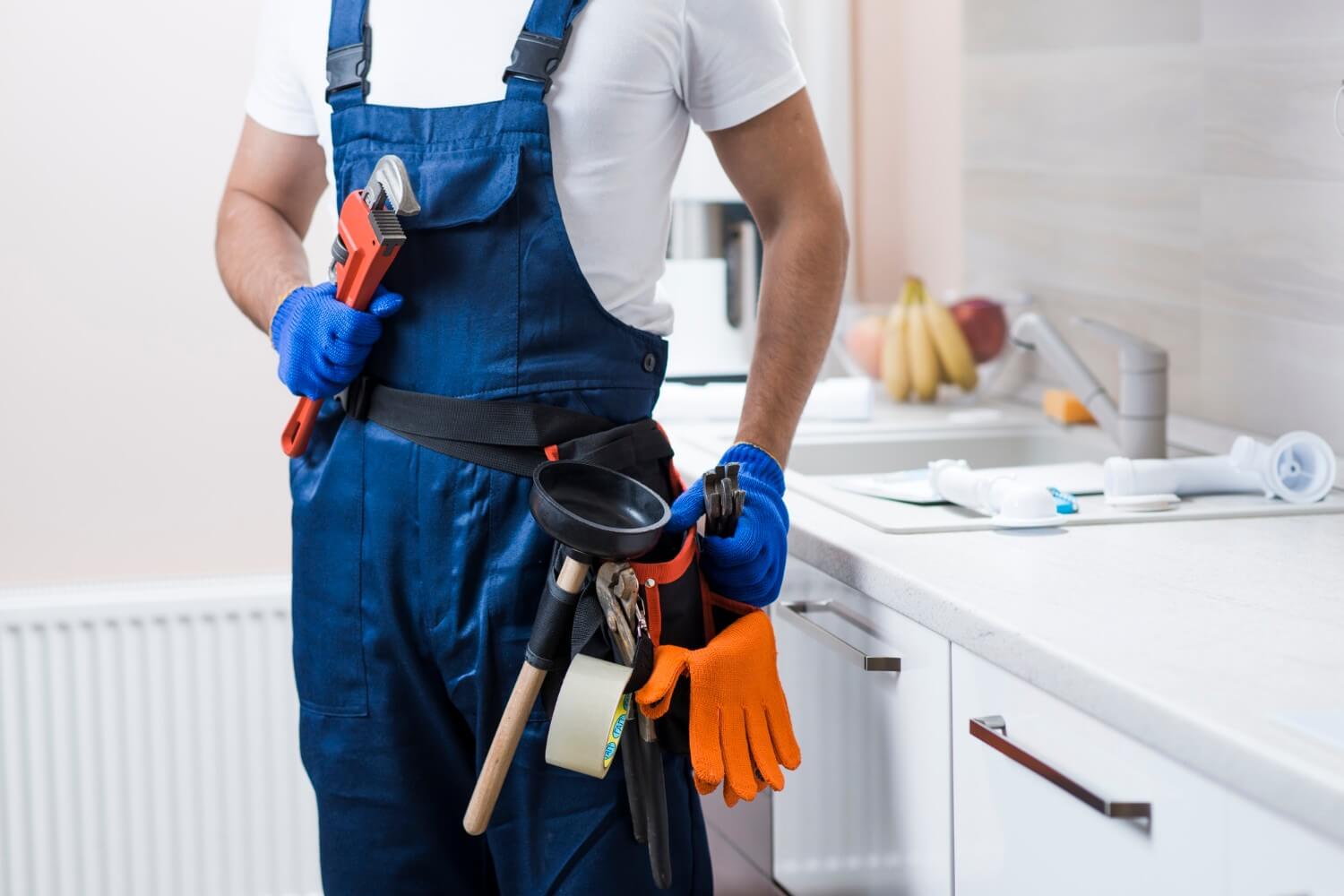
No state license is needed to work as a plumber in Missouri. However, before starting any work, make sure you are aware of any local plumbing codes or requirements that may apply.
Massachusetts

To work legally as a plumber in Massachusetts, you must have a state license given by the Board of State Examiners of Plumbers and Gas Fitters. There are three classes of plumber licenses offered:
- Apprentice plumber: You must be 16 years old and show proof of employment under the guidance of a licensed master plumber.
- Journeyman plumber: 8,500 hours of plumbing work experience under the guidance of a master plumber, 550 hours of plumbing theory, and pass an exam.
- Master plumber: You must have held your journeyman plumbing license for at least one year, including 1700 hours of plumbing work experience as a journeyman plumber.
Nebraska

You don’t need a state license to book jobs as a plumber in Nebraska. But you must register with the state’s Department of Labor. But you need to verify any local plumbing regulations or licensing before you start any plumbing work.
Nevada
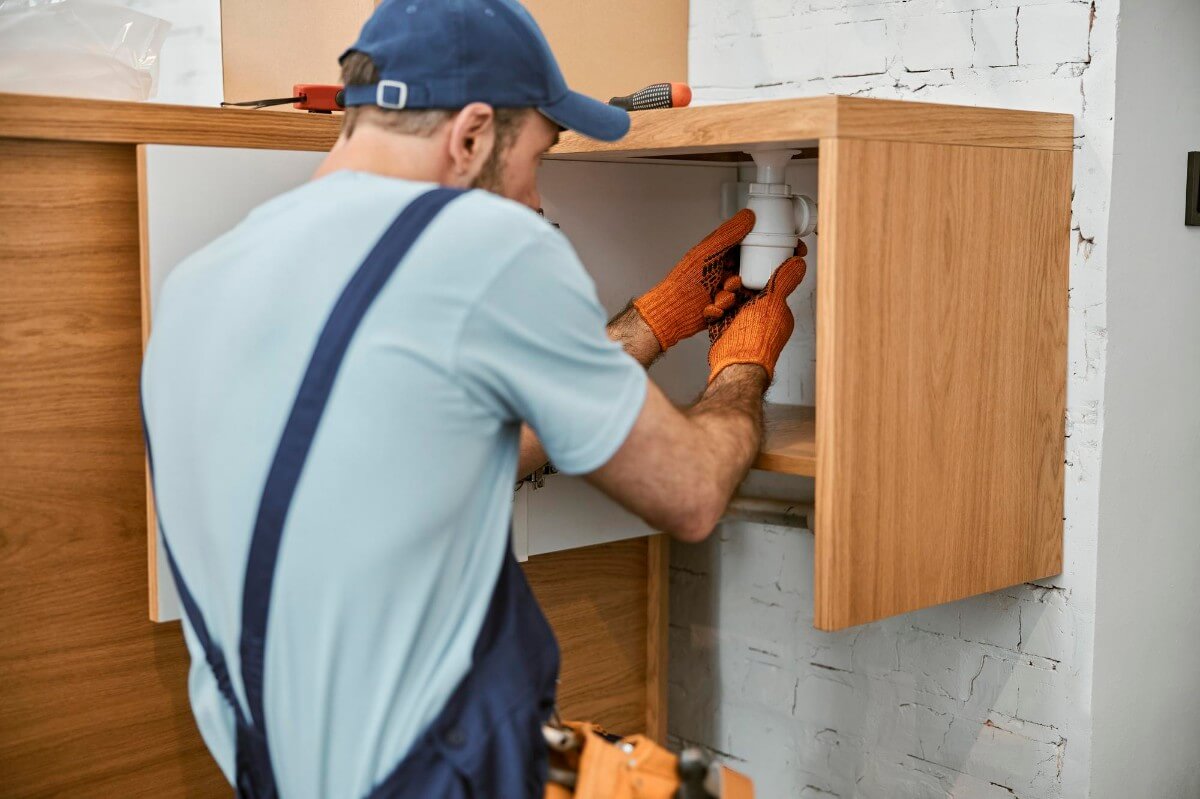
Plumbing contractors must have a state license to work legally in Nevada, and these licenses are issued by the Nevada Board of Plumbing Examiners.
- Journeyman plumber: 4 years of experience in a plumbing apprentice program and pass an exam.
- Master plumber: One-year of experience as a journeyman plumber and then pass an exam.
New York

There are no plumbing licensing requirements in New York. But, in many counties and cities, there are strict regulations, so you should check with your local government authorities before you start to work.
New Jersey
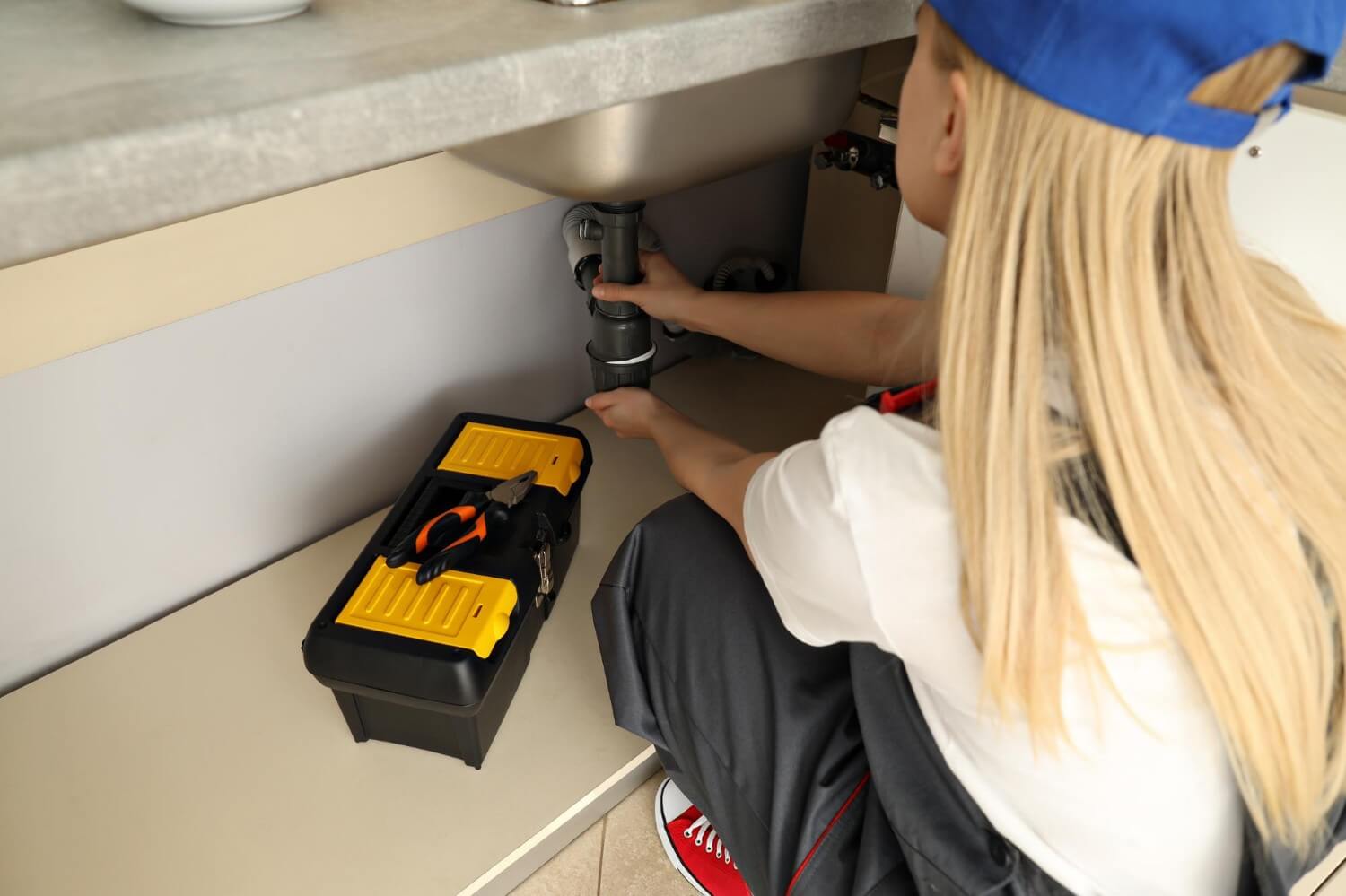
You must register to work as a journeyman plumber or plumbing apprentice in New Jersey. To operate as a master plumber, you must have a license awarded by the New Jersey State Board of Examiners of Master Plumbers.
- Journeyman plumber: You should be registered.
- Master plumber: One year of experience as a journeyman plumber and pass an exam in the business and law section.
North Carolina
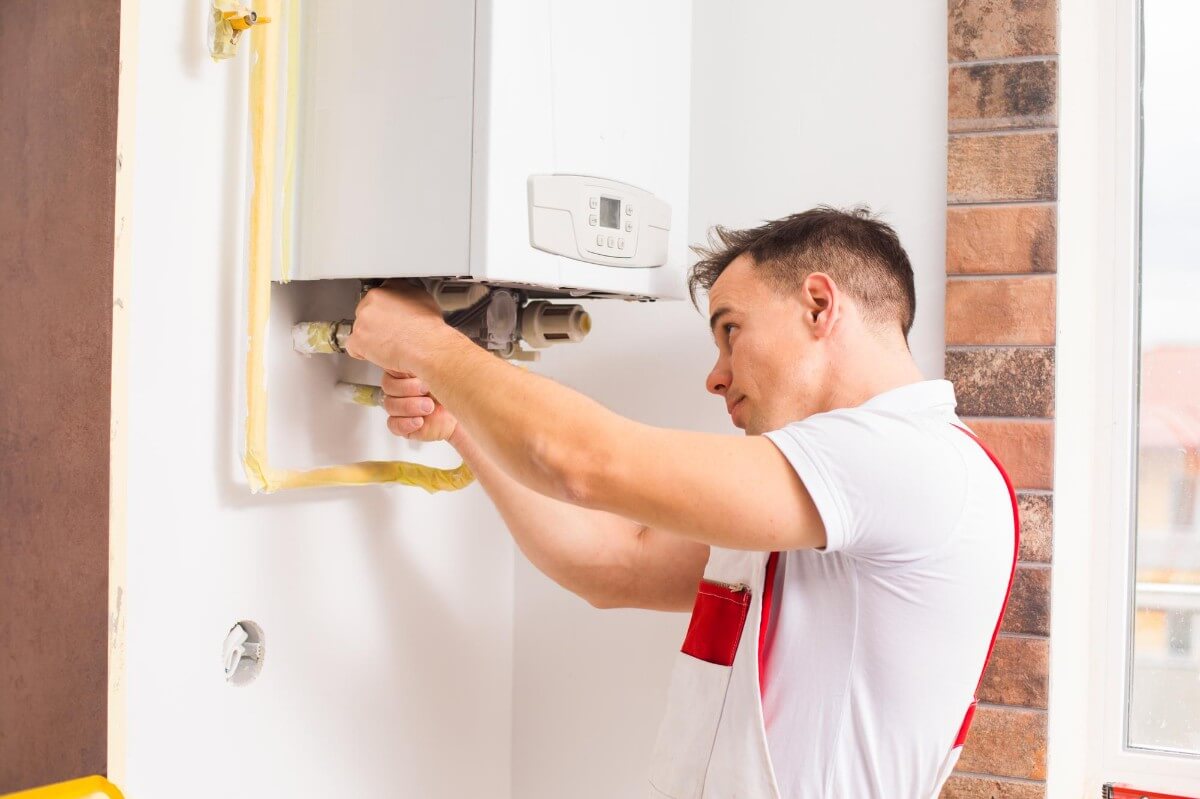
To work as a plumber in North Carolina, you must have a state license. Available plumber licenses include:
- Plumbing contractor: 2 years of experience and pass a licensing exam.
Ohio

You don’t need a license to work as a plumber in Ohio. But commercial plumbers may be required to obtain a license from the Construction Industry Licensing Board.
Oklahoma

To work as a plumber in Oklahoma, you are required to have a state license issued by the Oklahoma Construction Industries Board. This plumbing license includes:
- Apprentice plumber: You don’t require a license but must be registered with the relevant authorities.
- Journeyman plumber: You must have at least three years of experience as an apprentice and pass a licensing exam.
- Master plumber: Have a minimum of three years working as a journeyman plumber and pass an exam.
Oregon
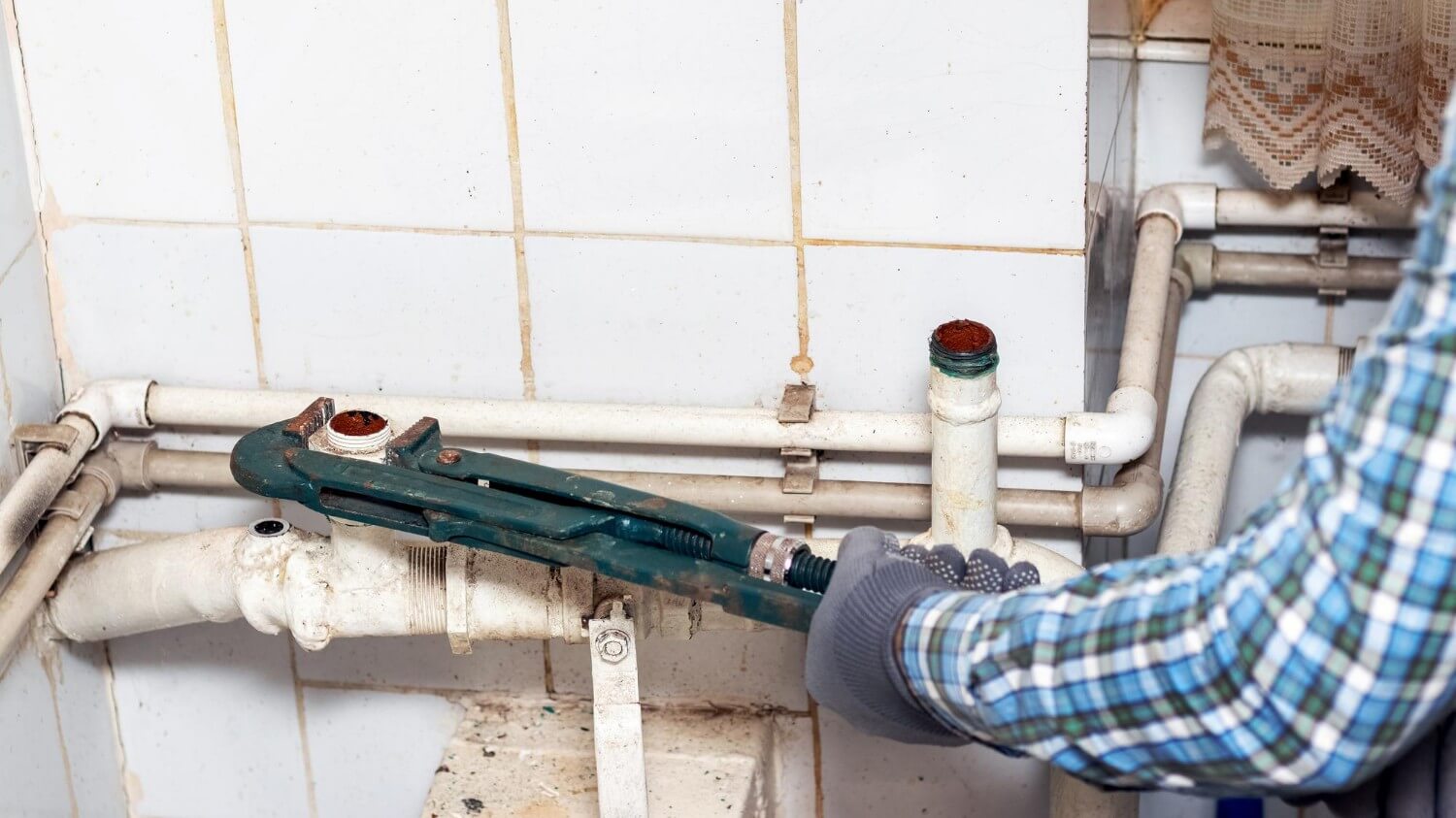
As a plumbing contractor, you must have a state license to operate legally in Oregon. The license is issued by the Department of Consumer and Business Services, Building Codes Division. To qualify for a journeyman plumber license, you should have at least four years of experience as an apprentice in a registered program, and you must also pass the exam.
Pennsylvania

You don’t require a state license to work as a plumber in Pennsylvania. But, make sure that you check the local plumbing licensing requirements before you start to work.
Rhode Island
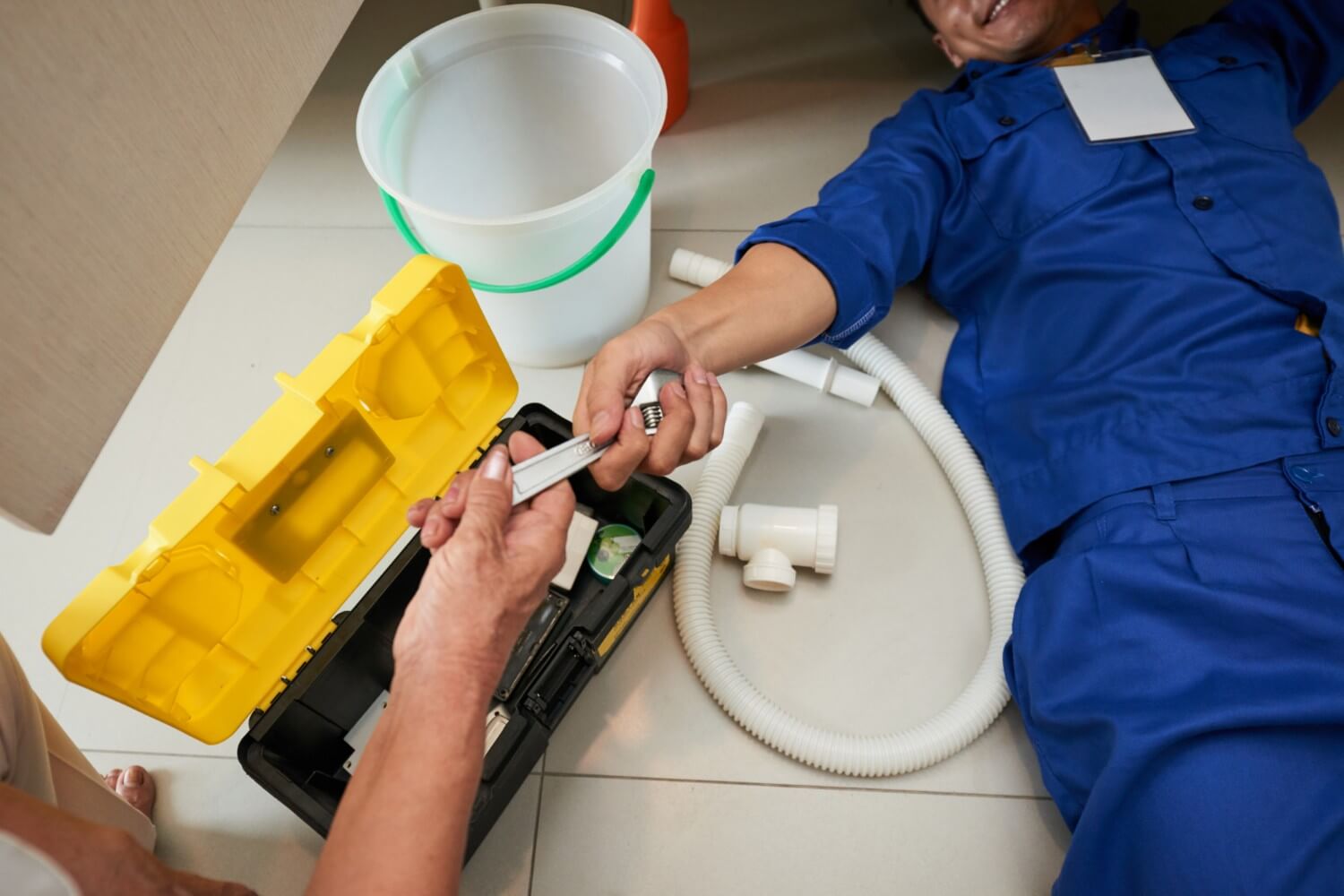
To work as a plumber in Rhode Island, you must have a state license before you book any plumbing job. The licenses are awarded by the Rhode Island Department of Labor and Training, Division of Workforce Regulation and Safety, and Professional Regulation Unit under two classes:
- Journeyman plumber license: Prove that you have four years of experience as an apprentice and pass an exam.
- Master plumber license: You must be a journeyman plumber for at least one year or more and pass the licensing exam.
South Carolina
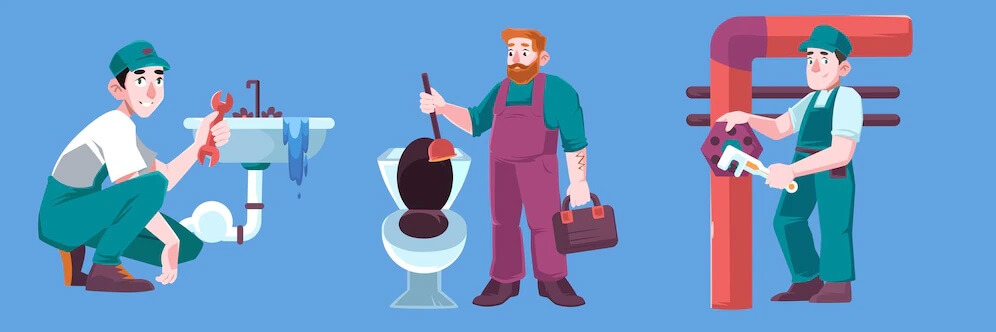
In the state of South Carolina, you need a license to work as a plumber, and these licenses are given by the Department of Labor after passing an exam.
South Dakota
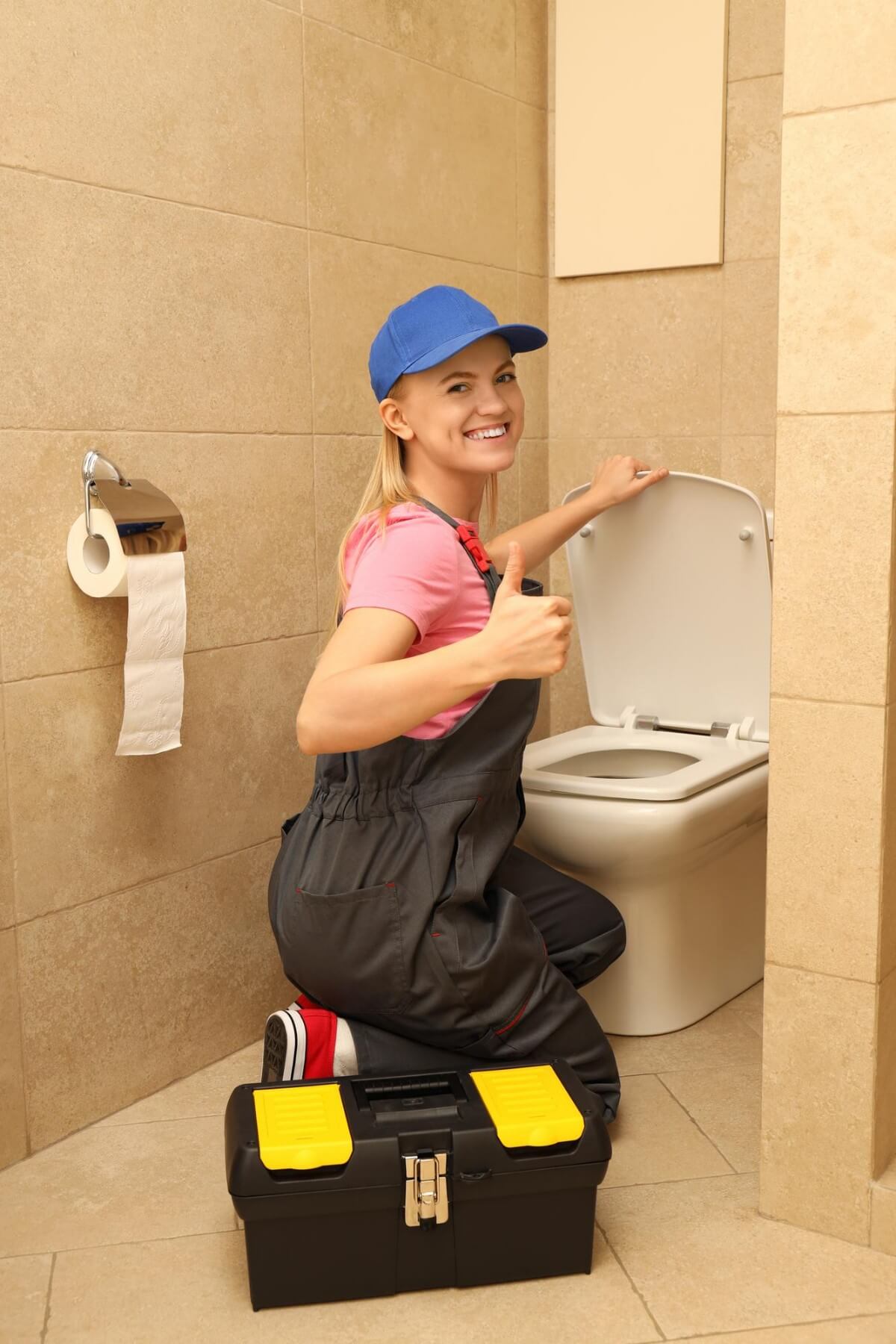
The South Dakota Department of Labor and Regulation, Plumbing Commission issues three kinds of licenses which include:
- Plumbing apprentice license: You must have several years of experience under the guidance of a licensed plumber (mostly for four years)
- Journeyman plumber license: You must have four years of experience as an apprentice and pass an exam.
- Master Plumber: You must have at least six years of experience in the plumbing company and pass the licensing examination.
Tennessee

In Tennessee, plumbing licenses are issued both at the local and state level, and it will also depend on the kind of plumbing projects you want to do. Here are the details about state-issued licenses:
- Limited license plumber: This is needed for small projects, particularly if you don’t have any local requirements. You must pass an exam.
- Plumbing contractor: This is needed for projects that exceed $25,000. You require at least three years of plumbing experience and pass an exam.
Texas
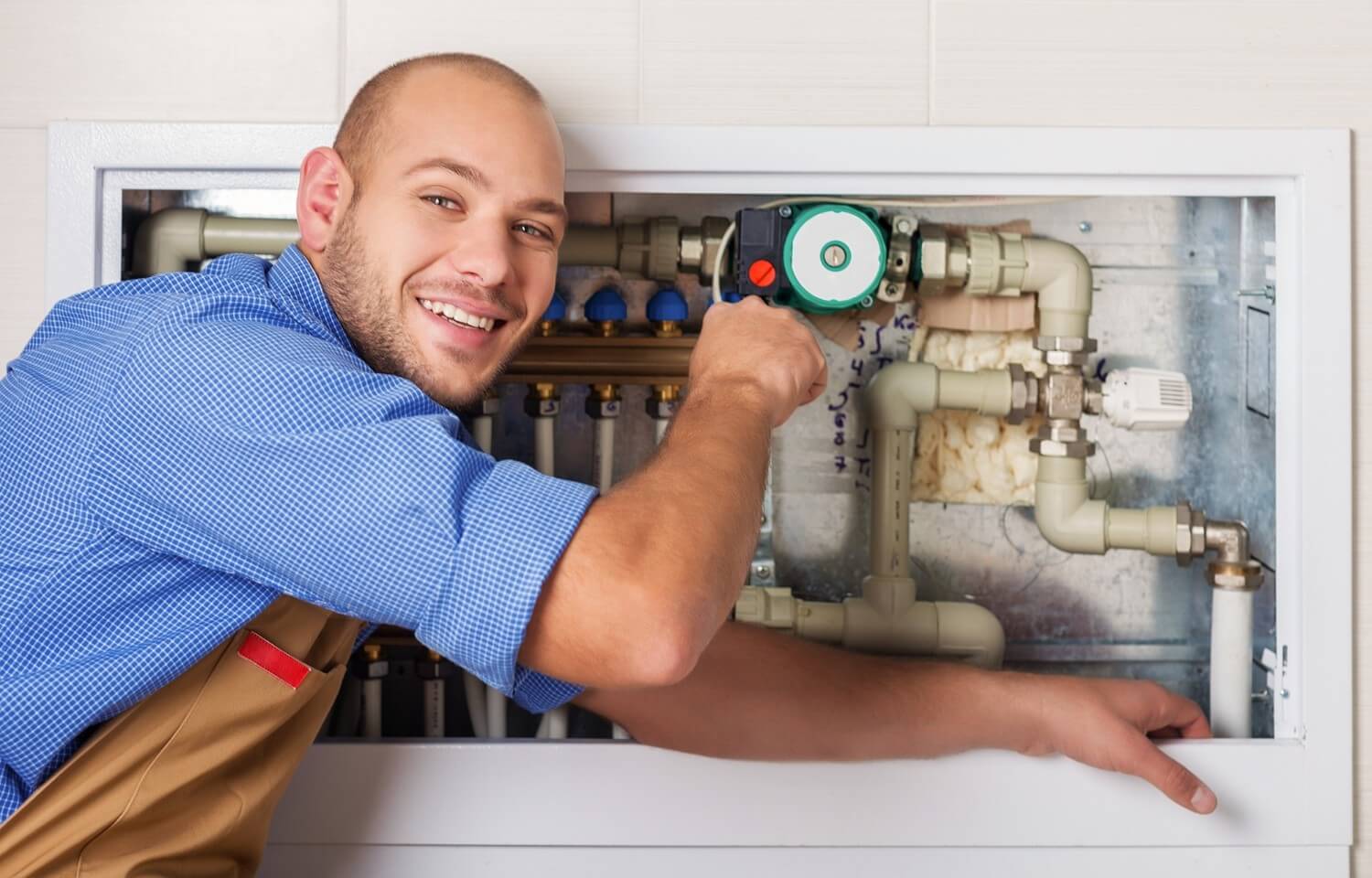
To work legally as a plumber, you require a state license in Texas. Here are some of the plumbing licenses you need in Texas, plus their licensing requirements:
- Journeyman plumber: You must have a high school diploma or GED equivalent, registered as a plumbing apprentice, and pass an exam.
- Master plumber: A journeyman plumber license plus four years of experience and pass an exam.
Utah
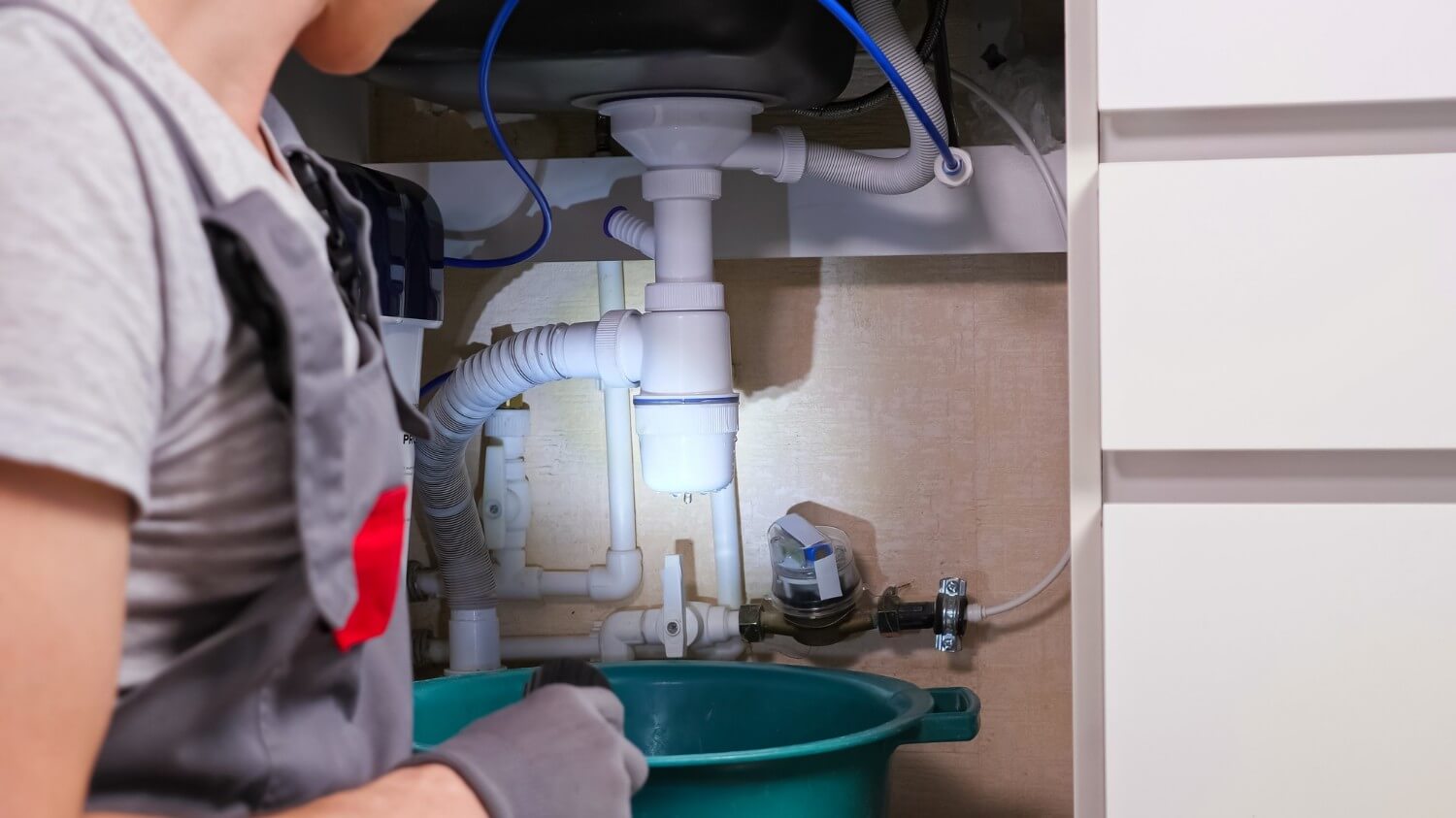
You need a state license to work as a plumber in Utah, and these licenses are issued by the Department of Commerce in Utah.
- Journeyman: You must show proof of four years as an apprentice and pass the licensing examination.
- Master Plumber: A minimum of two years working as an apprentice plumber and pass an exam.
Vermont
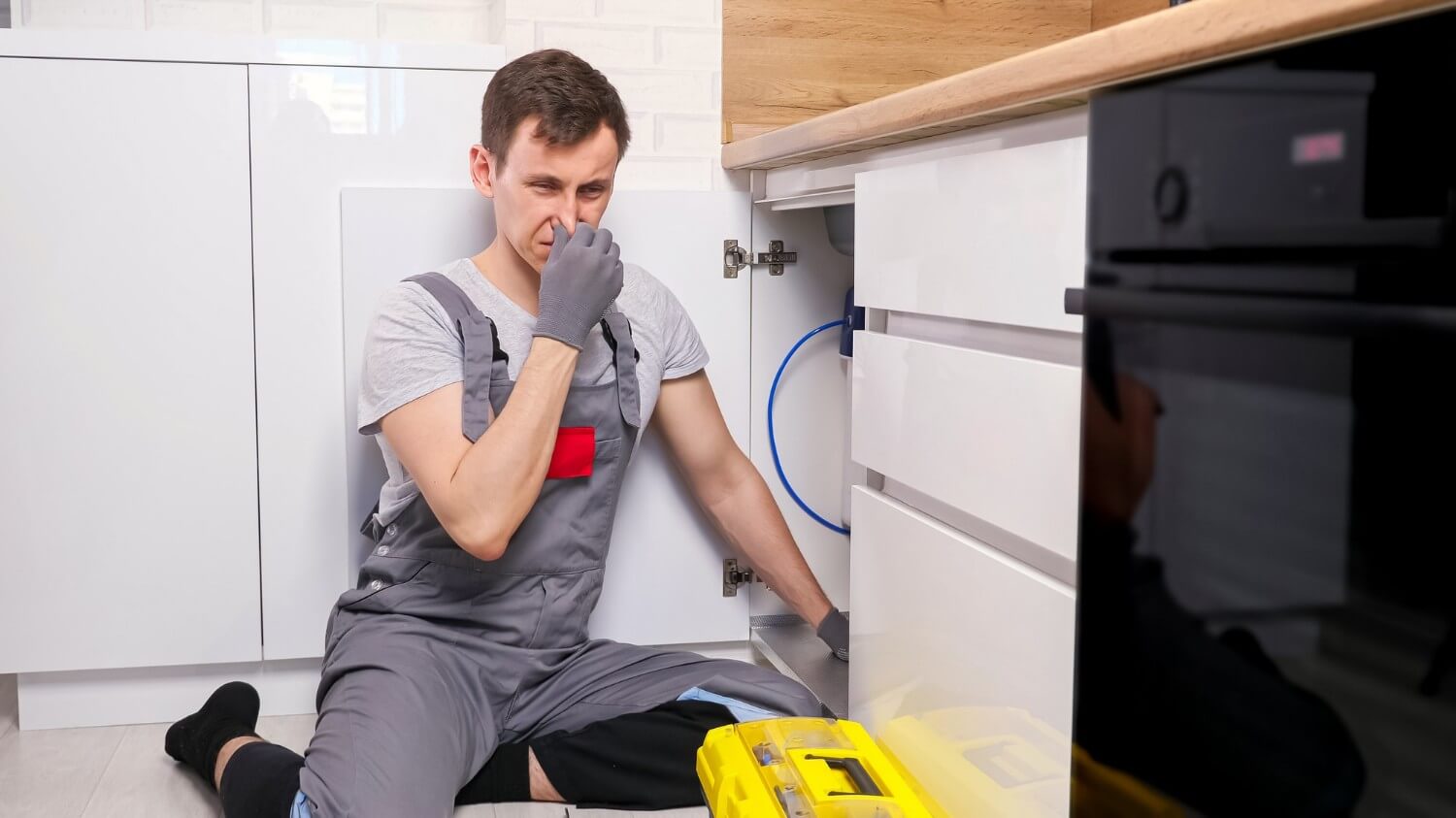
To work as a plumber in Vermont, you will need a state license. These are awarded by the Department of Public Safety, and each license requires you to pass an exam.
- How to become a Journeyman plumber: You must complete a state-approved apprenticeship program before being allowed to sit for the exam.
- Master plumber: You must have a one-year of experience as a journeyman plumber and pass an exam.
Virginia
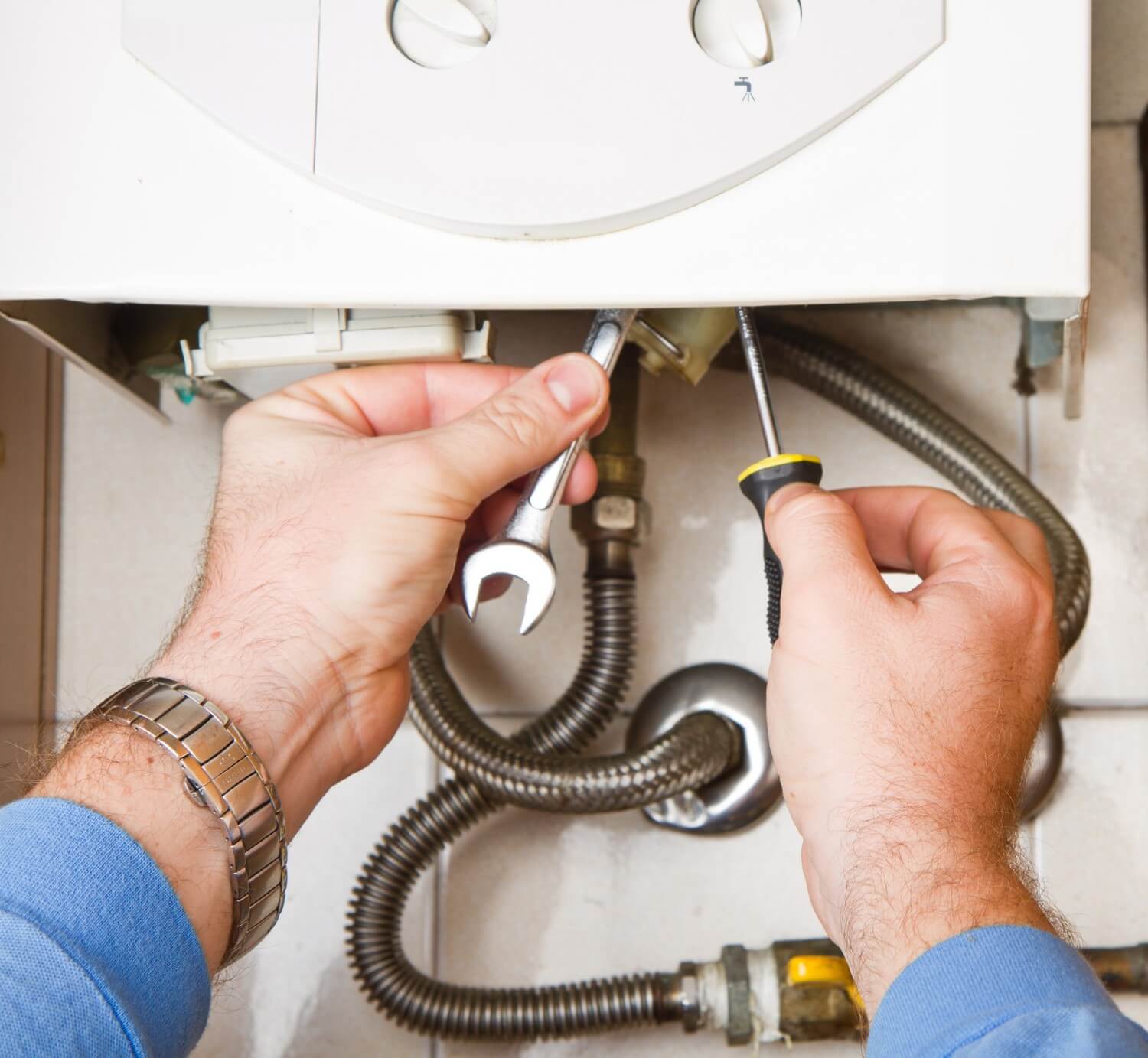
Plumbing contractors in Virginia must be licensed by the state. But you must pass the licensing exam.
- Journeyman plumber license: prove four years of experience as an apprentice
- Master plumber: Have one year of experience as a journeyman plumber license.
Washington
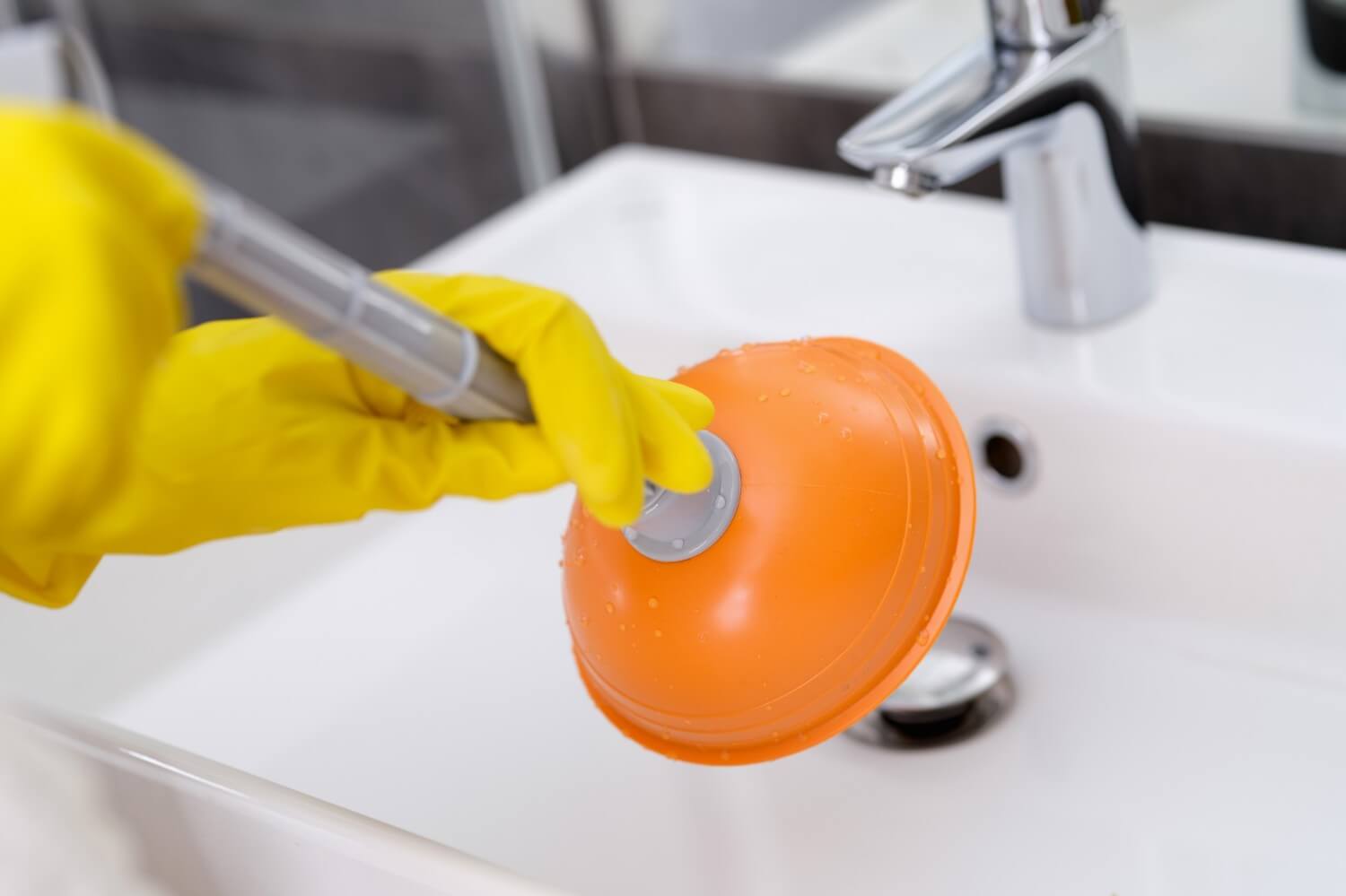
You must be licensed to work as a plumber in Washington. The plumbing licenses you need include but are not limited to:
- Journeyman: Four years as a plumbing apprentice, with experience in both industrial and commercial installation.
- Specialty residential plumber: Six years of experience under a certified plumbing contractor.
Wisconsin

To do any plumbing work in Wisconsin, you need to be licensed by the state. Understanding the process of how to become a licensed plumber in Wisconsin is crucial. Here are some of the plumber licensing options in Wisconsin:
- Journeyman plumber: Complete a plumbing apprentice program approved by the state and pass an exam.
- Master plumber: Get three years of experience in the field as a journeyman plumber and pass the licensing exam.
Wyoming
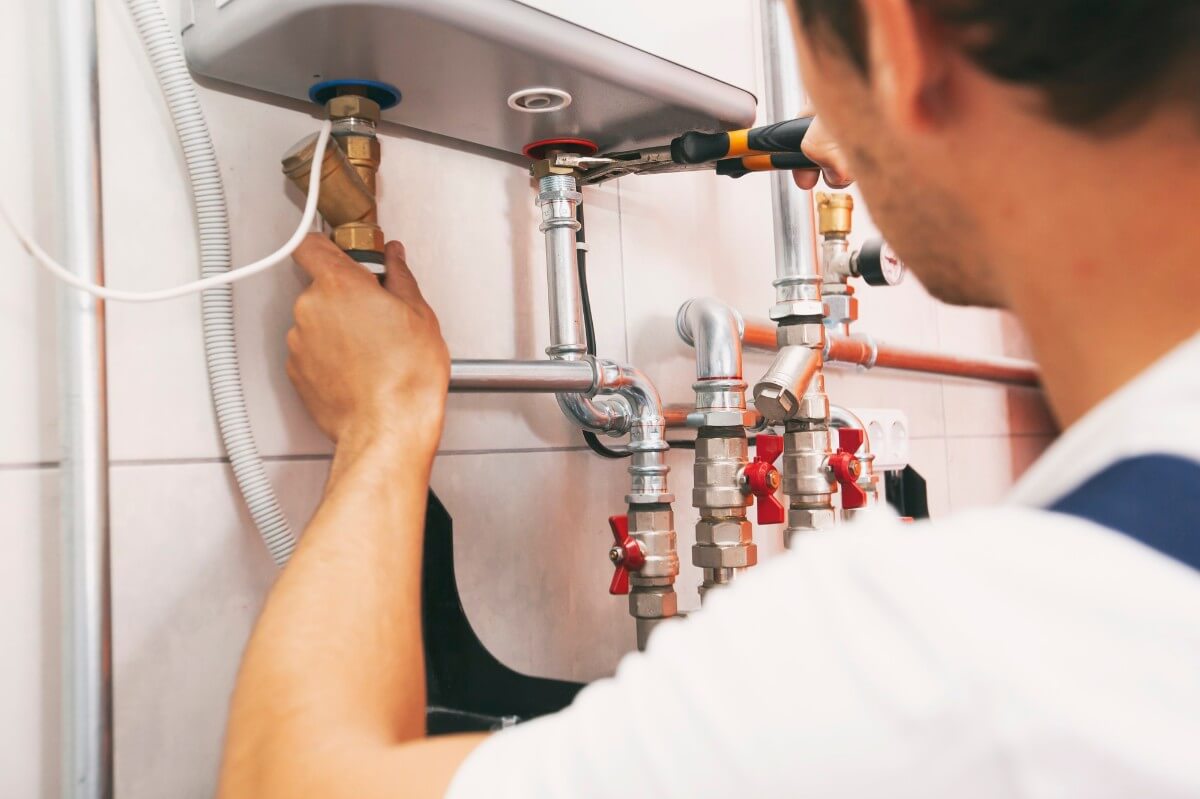
You don’t require a state license to work as a plumber in the state of Wyoming. However, certain municipalities have their local licensing requirements for plumbers, so make sure that you check them out.
Frequently Asked Questions on How to Become a Licensed Plumber

How much does a plumber’s license cost?
This is a common question among aspiring plumbers. In most states, you will be required to pay a small application fee to get your plumbing license.
How long to become a licensed plumber?
Plumbing is more than tinkering with pipes and drains. Plumbers also install, maintain and repair cooling, gas, water supply, ventilation, heating systems, and more. In the U.S., licensed plumbers are always in high demand. If you are wondering how long it will take to become a licensed plumber, then we got you covered.
Truth be told. The process of how to become a licensed plumber doesn’t happen overnight. Like in other skilled trades, your journey to becoming a licensed plumber starts with an apprenticeship program (usually four years) under the guidance of a master plumber, along with sitting for written and practical trade exams.
Grow Your Plumbing Service Business
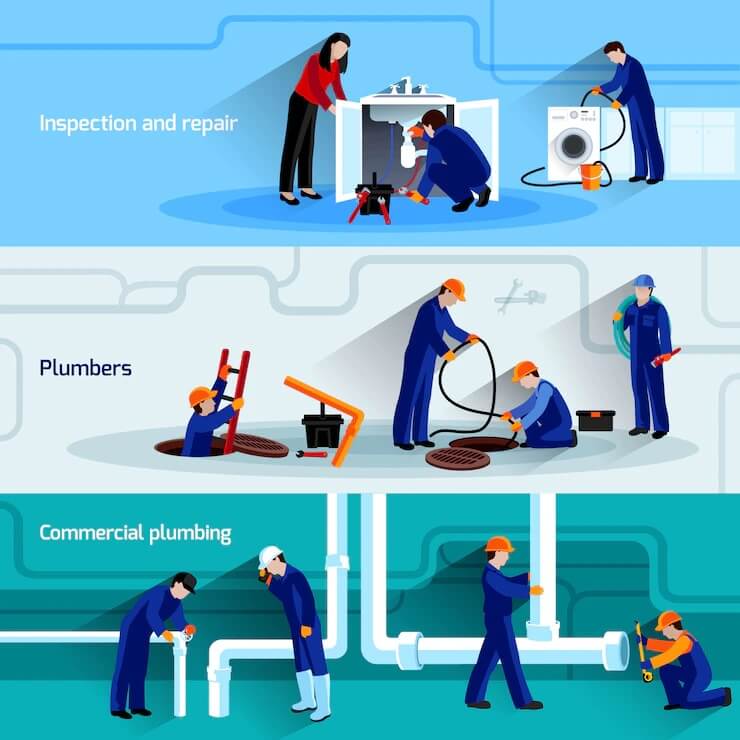
Once you have attained all the requirements for a plumbing license in your state, it’s time now to spread the word to prospects of your availability for service jobs and to scale your plumbing company.
By implementing a set of proven plumber marketing strategies, you can make sure that all the efforts you put forward to get a license can be put to profitable and good use. Also, ensure that you keep abreast of all digital marketing for plumber trends to help you stay ahead of the curve.
Schedule a free discovery call with Blackstorm Design + Marketing for more information today.
